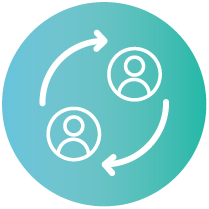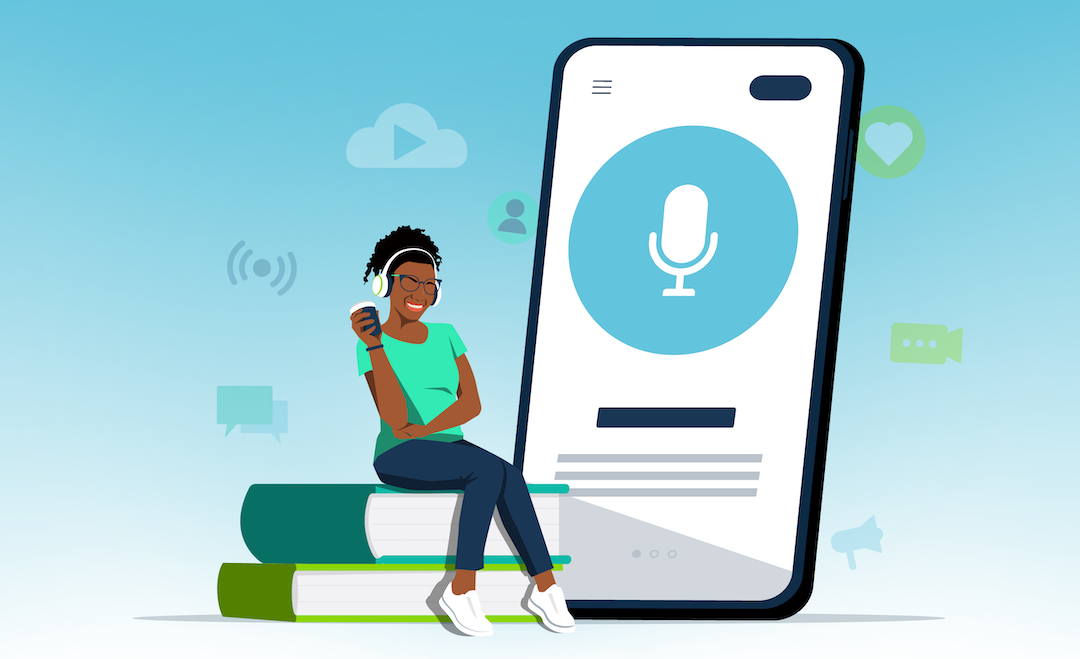 Your frontline employees are your foot soldiers, cheerleaders and organisational rockstars. They’re the backbone of your business, the first impression for your customers, and the ones who can make or break a brand experience. No pressure, right?
Your frontline employees are your foot soldiers, cheerleaders and organisational rockstars. They’re the backbone of your business, the first impression for your customers, and the ones who can make or break a brand experience. No pressure, right?
In today’s competitive market, providing exceptional customer service is no longer a nicety, it’s a necessity. And to achieve this, equipping your frontline employees with the right training is crucial.
In fact, did you know that if a customer experiences good service, they’ll tell 2-3 people? On the other hand, if they experience bad service, they’ll tell 8-10 people. This must be avoided at all costs.
This article will delve into the key elements of successful frontline employee training. We’ll explore how you can identify your staff’s needs, choose the right training methods, and create a culture of continuous learning that empowers your team to deliver their best every day. Let’s get started!
What Is A Frontline Employee?
Frontline employees are the individuals who directly interact with customers, provide essential services, and keep your day-to-day operations running smoothly. They play a vital role in the success of any organisation that interacts with the public or delivers essential services.
After all, they are the ones who put your company’s mission into action and leave a lasting impression on customers. Here’s a breakdown of what defines a frontline employee:
- Direct Customer Interaction: Frontline employees are often the first point of contact for customers, be this over the phone, online or in person. This could include retail staff, cashiers, call centre representatives, or receptionists.
- Essential Service Providers: They deliver services that are crucial to the function of an organisation. For example, this includes healthcare workers, law enforcement officers, teachers, sanitation workers and so on.
- Operational Roles: Finally, frontline employees often play a vital role in keeping things running behind the scenes. This might include factory workers, warehouse staff, or delivery personnel who ensure goods are delivered on time.
Key Worker Vs Frontline Worker

The terms ‘frontline worker’ and ‘key worker’ are often used interchangeably, but there is a subtle difference between them. As we’ve seen, frontline workers are the people who have direct contact with customers, the public, or essential services.
Key workers, on the other hand, are workers in essential sectors whose absence would severely impact the functioning of society. This includes healthcare workers, those in the emergency services, food distributors, teachers, childcare professionals, and so on.
Think of key workers as the all-stars of the frontline. They’re the ones whose absence would cause major disruptions, even if they don’t always have direct contact with the public. But hey, all frontline workers are important in their own way!
Frontline Roles
The spectrum of frontline roles is expansive. You’ll find them working in a variety of places, such as stores, restaurants, beauty salons, hospitals, factories, educational institutions, warehouses, and construction sites. Let’s take a look at some examples:
| Industry | Roles |
Health and social care | Doctors, nurses, midwives, paramedics, social workers, pharmacists, hospital workers |
Education and childcare | Teachers, social carers, specialist education professionals |
Public services | Justice system workers, religious staff, journalists, charity staff |
Local and national governments | Workers handling the payment of benefits, goods certifiers, field workers, postal workers, border security |
Food and goods provisions | Food production workers, workers in distribution supply chains, sales staff, chefs, waitstaff, delivery personnel, factory floor workers |
Public safety and national security | Police, fire service employees, military, armed forces, prison and probation staff, security |
Transport | Workers in the air, water, road and rail transport systems |
Utilities, communications and financial services | Essential financial provisions staff, telecommunications workers, oil, gas and electricity suppliers, postal and delivery services, waste disposal staff |
What Sets Frontline Roles Apart from Others?
Frontline employees require a particular set of skills. After all, they are the face of your organisation and oftentimes the only contact customers have with your company.
The customer-centric role means that your frontliners need to be soft skills superstars. They’ll need to exude composure, poise, adaptability, empathy, intuition, common sense, wit, and many other types of emotional intelligence.
Below are some of the most important skills and characteristics your frontline workers need to operate in their roles successfully:
- Communication: Your frontline employees need to know how to communicate effectively via all mediums. They’ll need to master verbal and written communication and be ready to use email, live chat, and social media as necessary.
- Empathy: 55% of all communication is dedicated to listening and empathising. As a result, empathy is critical in a customer service role. It helps your frontline workers to connect with your target audience and removes any barriers to effective communication.
- Patience: Be it lost orders, or faulty products, your customer service operators will have to deal with their fair share of customer queries and complaints. In this field, a little bit of patience goes a long way.
- Adaptability: Every customer interaction is unique. Frontline employees, therefore, need to be prepared to adapt quickly to new situations. Call centre staff, for instance, take up to 200 calls a day. As a result, it’s likely that there will be a wide variety of challenges to overcome.
How To Train Your Frontline Employees

Your frontline employees are the backbone of your organisation. They’re the ones who directly shape your customer experience and leave a lasting impression. But are you equipping them with the tools and knowledge they need to shine?
Effective training goes beyond simply showing them the ropes. It’s about empowering your frontline to be confident, capable brand ambassadors who can handle any situation with professionalism and grace.
In this section, we’ll explore strategies to identify your staff’s needs, choose the right training methods, and create a culture of continuous learning that fosters growth and development.
1. Get To Know Your Learners

Your frontline workers are not a monolith. They come from diverse backgrounds, and all have unique experiences and learning preferences. To truly engage them and maximise learning potential, you’ll need to take the time to understand your audience.
You should start by conducting a training needs analysis. This typically involves surveys, interviews, or focus groups that help you to identify specific needs, knowledge gaps, and any preferences that may inform your structured workplace training programme.
We also recommend conducting a learner personas exercise. These are detailed profiles based on real data about your frontline workers. By understanding these personas, you can create targeted learning interventions that truly resonate with your audience.
2. Set Clear Objectives

Before launching into any training programme, it’s crucial to define your goals. What specific skills or knowledge do you want your frontline employees to gain? What are the desired outcomes for you and your business?
Having clear objectives acts as a roadmap, ensuring your training programme stays focused and delivers measurable results. Remember, specificity is key. Instead of vague goals like ‘improve communication skills’, define success with measurable metrics like ‘increase customer satisfaction scores by 10%’.
3. Improve Accessibility

Your frontline workers are typically very busy and often have to juggle an assortment of tasks at once. In addition, they usually don’t operate in an office, which makes it difficult to organise cost-effective training.
As such, you should seek to increase accessibility and flexibility by introducing mobile learning. This will give your frontline workers opportunities to learn without the shackles of a desk. Learning on the go and at the point of need can also create a habitual approach to learning.
Whether you’re using a responsive mobile website, or a dedicated mobile app, your learners will be able to access their training whenever they need it. Your learners can even access their training on their own personal devices.
4. Make it Micro

Microlearning is a method of delivering learning content in short, focused bursts of information. This makes it quicker and easier to consume, which in turn makes it easier for your frontline employees to embrace.
Breaking learning down into chunks also encourages spaced repetition, which can improve retention by a whopping 800%!
As it happens, microlearning and mobile learning are a match made in heaven. Incorporating both in your training programme ensures that even your busiest frontline workers can receive effective training.
5. Clear Communication

Open and clear communication helps you to empower your frontline employees. But as we know, good communication is a two-way street. Your training should communicate a sense of purpose, which in turn can help to foster collaboration and productivity.
With this in mind, don’t just outline the tasks your frontline needs to complete. Work to convey the bigger picture and highlight the impact your employees have on others. Understanding how your work directly improves lives can be a powerful motivator.
In turn, you should also seek to build your frontline employee’s communication skills. This includes verbal and written communication, politeness, clarity and empathy. After all, 89% of customers have switched brands due to a poor customer service experience.
6. Use Scenario-Based Training

It’s true what they say: you learn more on the job than you do in formal training settings (see the 70:20:10 model). That’s why your frontline workers need training exercises that go beyond theory.
Scenario-based training immerses your audience in real-life situations they’re likely to encounter, allowing them to practice critical skills and decision-making in a safe, controlled environment. This helps to:
- Champion ‘failing forward’: the ability to fail before an event has taken place.
- Improve retention by triggering memory and storytelling.
- Keep learners engaged by putting them front and centre.
- Encourage learners to apply their knowledge effectively.
Are you interested in a learning model that champions problem solving? Check out Merrill’s First Principles of Instruction.
7. Offer Customer Service Training

Research by UKCSI found that the number of UK customers experiencing service issues has risen to its highest level since 2009.
This leads to complaints, returns, lost revenue and countless other issues. Be it retail work, social media managers or (especially) complaint handlers, dealing with difficult customers is part and parcel of being a frontliner.
And that’s why your frontline employees need adequate customer service training. This will empower them to handle interactions more professionally and effectively, leading to happier and more satisfied customers (and hopefully repeat business!).
8. Promote Upselling Opportunities

Let’s not beat around the bush. The goal of most companies is to make a profit. As such, whether they work in retail, construction or customer services, your frontline employees should be prepared to turn every opportunity into a sale.
The more they know about your company, target audience and your products, the more confidently they’ll be able to convey the benefits to any potential customers. This is true whether we’re talking about professional salespeople or frontline workers in general.
With this in mind, ensure your frontline workers have easy access to the information they need, right when they need it. Consider creating tailored learning campaigns focused on improving sales technique and product knowledge.
9. Present a Clear Vision

Presenting a clear vision of your organisation helps you to increase your frontline workers’ job satisfaction and buy-in. Your vision needs to be clear enough that all levels of your business can understand it. Similarly, a concise vision is easier to communicate.
Your organisation’s vision shapes your entire culture, including your training initiatives. Understanding the vision and goals of the business helps your frontline employees to incorporate them into their own work. In turn, they’ll then be better placed to convey these messages to your customers.
10. Demonstrate Brand Values

Your brand values guide your operations and decision-making. As such, it’s essential that all your employees understand and live these values. This ensures they embody the same set of standards. This is especially true when it comes to your frontline workers.
You can do this by making sure your training content explains what your brand values are and why they matter. This should be a part of the onboarding training they receive when they first join your organisation. You should then seek to thoroughly reinforce these messages throughout their career development.
11. Seek & Provide Feedback

Your frontline workers often know your customers better than anyone else. They know their needs, issues, challenges, preferences, and more. Of course, this makes them a rich source of intellectual capital for your organisation.
As such, asking for and using their feedback helps you to identify issues and streamline your processes. This, in turn, helps you to foster collaboration and loyalty as your frontliners know their voice matters.
Equally, it’s just as important to let your frontline workers know what’s working and what isn’t. You should seek out regular opportunities to provide feedback and recommendations. This can be handled through manager check-ins or via learning technology solutions.
12. Organise Coaching & Mentoring

Being a frontline worker is not easy. They often deal with difficult situations and customers, new challenges, and things not going as planned.
These attributes make frontline employees unique. If your L&D professionals and instructional designers have never worked in such a position, it may be difficult to understand the true depth of training your frontline workers need.
That’s where coaching and mentoring comes in! Coaching can empower your frontliners at all levels to leverage their skills and achieve their goals. They will receive knowledge from more weathered individuals in similar positions and learn from their treasure trove of experience.
13. Invest in Onboarding

While a great onboarding programme is important in any role, it’s especially so with your frontline workers. After all, your newly-hired frontliners will be working in a fast-paced environment, typically in customer-facing roles. There’s little room for errors.
Employee motivation starts at the beginning. As such, to ensure they are able to provide the best possible customer service straight away, you need to create a solid foundation for their success.
An effective onboarding programme acts as a springboard for success by immersing new hires in your company’s culture, vision, and values. In turn, this helps to foster a sense of belonging and purpose, while equipping them with the tools and knowledge they need to excel.
14. Reward High Performers

Being a frontline employee is no walk in the park. After all, they’re the first line of defense, often fielding customer complaints and navigating the stress of fast-paced interactions.
As such, your training programme should reward your high performers. Recognising their efforts is one of the best ways to make your frontliners feel valued and increase motivation.
You can use your online learning platform to offer both intrinsic and extrinsic rewards. Alternatively, game mechanics like Badges, Leaderboards and Experience Points (XP) are an excellent way to provide recognition.
15. Monitor Results

You cannot determine the success of your training initiatives without understanding the true impact they have on your frontline employees. As such, you need to focus on monitoring your results.
Your admins can analyse the progress your frontline employees are making through your digital learning platform. For example, Growth Engineering LMS contains an inbuilt reporting suite that streamlines the collection and interpretation of learning data.
You can also use quizzes and assessments to identify knowledge gaps and fill them with timely content interventions. Armed with this information, you’ll be in a much better place to refine and improve your training programme.
Final Word
From showing patience at the returns counter to answering difficult lost order calls or driving hundreds of miles for a delivery, frontline employees can be found in every corner of every industry.
They hold the key to your success, which makes their importance immeasurable. As such, it’s essential that you provide a wealth of support for your frontliners.
The best training strategies for your frontline can range from bite-sized mobile learning modules to collaborative social learning and engaging gamification. Digital learning technology empowers you to create training that directly addresses the needs of your frontline employees.
Learner engagement is the holy grail of frontline training! Our 150 engagement tips will help you to craft effortlessly engaging learning experiences.









